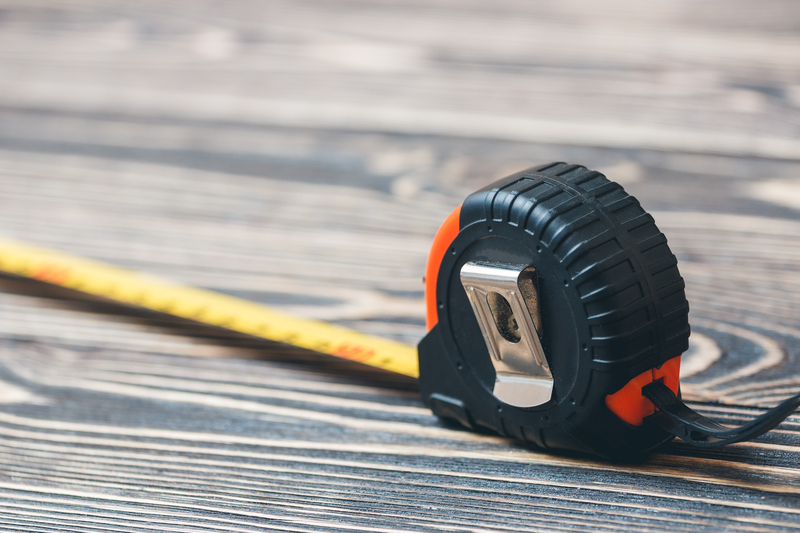Key Tips for Safely Stowing Away Your Freezer for Months
If you're looking to store your freezer for an extended period, it's important to do so the right way. Careful preparation and proper storage methods will help ensure that your freezer remains in perfect working order when you need it again. Whether you're moving, remodeling, or simply don't need your freezer for a while, following best practices for long-term freezer storage is essential.

Why Proper Freezer Storage Matters
A freezer is a valuable appliance in any household. However, if you plan to stow it away for a few months without due diligence, it may lead to damage, odors, or even mechanical problems down the road. Taking the time to store your freezer safely ensures longevity and good performance, reducing the risk of unexpected repairs or replacements.
This comprehensive guide offers key advice and actionable steps for storing your freezer over a lengthy period. Here's everything you need to know.
1. Thoroughly Empty Your Freezer
Before you even think about moving or unplugging your appliance, empty it entirely. Remove all food items, ice trays, and removable storage compartments. This prevents food spoilage, avoids mold growth, and makes the next steps much easier.
- Discard expired or unneeded food items.
- Store usable items in another freezer or use them up before stowing your freezer away.
- Take out all removable shelves and drawers for separate cleaning.
2. Defrost the Freezer Completely
Properly defrosting your freezer is a crucial task before storing it long term. Ice build-up not only hampers efficiency but also leads to water damage and unpleasant odors during storage. Most freezers have a manual defrost button or require unplugging to melt the ice naturally.
- Turn the freezer off or unplug it from the power outlet.
- Place towels around the base to catch melting ice and water.
- Remove chunks of ice gently with a soft spatula--never use sharp objects.
- After the ice has melted, dry the interior thoroughly with absorbent cloths.
Tip: Speed up defrosting by placing a bowl of hot water inside the freezer and closing the lid for a few minutes.
3. Clean the Interior and Exterior
With the freezer thawed and emptied, it's time for a deep clean. Sanitizing your freezer before months of storage is crucial in preventing mold, mildew, and bad odors.
- Mix a solution of mild dish soap and warm water.
- Wipe down all interior surfaces, including door seals and gaskets.
- Remove and wash any drawers, shelves, and removable parts separately.
- Rinse the surfaces with clean water and dry them thoroughly.
- For stubborn stains or odors, use a mixture of baking soda and water.
*Allow every piece to air dry completely before reassembling.* Even small amounts of moisture can lead to mold growth during extended storage.
4. Address and Protect the Door Seal
The freezer's door seal, or gasket, is vital for maintaining an airtight closure. Neglecting this can cause it to dry out, crack, or even harbor mold over time.
- Clean the gasket gently with mild soap and water.
- Wipe it dry, then apply a thin layer of petroleum jelly to keep it supple.
- Inspect for wear or damage before proceeding.
A well-maintained gasket ensures your freezer remains energy efficient and odor-free when brought back into service.
5. Prepare the Freezer for Moving
If you need to relocate your appliance before storing, proper moving precautions will prevent physical damage.
- Secure doors with tape or wrap to prevent opening during transport.
- Use moving blankets or bubble wrap to protect exterior surfaces from dings and scratches.
- Keep the freezer upright at all times--laying it on its side can cause oil to flow into the cooling lines and potentially damage the compressor.
Pro Tip: If you must tip the freezer during the move, let it stand upright for at least 24 hours before plugging it back in.
6. Find an Ideal Storage Location
The location of your long-term freezer storage matters a great deal. Where you keep your freezer while it's not in use can impact its lifespan and future performance.
- Choose a clean, dry, and well-ventilated area such as a garage, basement, or storage unit with consistent temperature.
- Keep the freezer away from direct sunlight and excess heat sources to prevent external sweating, fading, or plastic warping.
- Avoid humid or damp environments, which can encourage rust and mildew.
- Elevate the freezer slightly off the floor if possible to promote air circulation and protect it from flooding or accidental leaks.
*The best place to store a freezer is one that is both temperature stable and protected from the elements.*
7. Ensure Proper Positioning and Airflow
To prevent condensation build-up and promote safe long-term freezer storage, your appliance should be positioned thoughtfully.
- Leave at least 2-4 inches of space between the back and sides of the freezer and the walls for adequate air circulation.
- Open the door slightly (propped with a wedge or spacer) to allow airflow and prevent odor or mold formation inside.
- Never stack heavy items on top, which can warp the structure or damage freezer components.
8. Cover and Protect the Freezer
Covering your freezer adds a layer of protection against dust, dirt, and accidental scratches, but it's important not to trap moisture within.
- Use a breathable sheet or appliance cover--avoid plastic tarps that trap moisture and encourage mildew.
- Check covers periodically for dust accumulation or signs of moisture.
*A simple cotton sheet is often best for protecting your freezer during long storage spells.*
9. Manage Power and Plugs Correctly
Never leave your freezer plugged in when storing it for months on end. Once emptied and cleaned, safely unplug the appliance and coil the cord neatly.
- Secure the power cord to the back of the freezer with tape, keeping it off the floor to prevent wear or damage.
- Label the cord if storing in a crowded storage area to avoid confusion later.
*Storing the freezer unplugged prevents electrical issues and eliminates the risk of fire or shock.*
10. Check and Maintain During Storage
Even while in storage, it's wise to check on your freezer every 4-6 weeks.
- Look for signs of moisture, rust, or pest activity in and around the appliance.
- Re-dry any visible dampness and ensure the door remains slightly ajar for airflow.
- If possible, air out the freezer briefly during inspection to keep it fresh.
This periodic assessment helps address problems before they escalate.
Bonus Tips: Reviving Your Freezer After Storage
When you're ready to use your freezer again, don't simply plug it in and load it up.
- Inspect the freezer inside and out.
- Wipe down all surfaces, even if they look clean.
- Check the power cord and plug for any signs of damage.
- Let the freezer stand upright for 24 hours if it's been moved, before turning it on. This allows all internal fluids to settle properly.
- Turn the freezer on and let it cool for several hours (ideally overnight) before placing any food inside.
Common Mistakes to Avoid When Storing Your Freezer
- Leaving the freezer closed and sealed tight - This can cause foul odors and trapped moisture leading to mold growth.
- Using strong chemicals or abrasive cleaners - These may damage internal surfaces or leave harmful residues.
- Placing heavy items on top - Risks damage to the lid, thermostat, or structural components.
- Storing in damp, unventilated spaces - Increases risk of rust, corrosion, and electrical problems.
Avoid these common pitfalls to ensure the longevity of your appliance.
Frequently Asked Questions About Long-Term Freezer Storage
Can I store a freezer upright?
Yes! Always store your freezer upright to avoid oil migration within the compressor system. Laying it down can harm the internal components.
How long can a freezer stay unplugged?
A freezer can be safely left unplugged indefinitely as long as it's clean, dry, and ventilated. The key is to keep the door slightly open and protect it from environmental hazards.
Should I use baking soda in the freezer during storage?
Yes, placing an open box of baking soda or a desiccant inside can absorb residual odors and moisture. Just remember to remove it before powering the freezer again.
Is it safe to store a freezer in a non-climate-controlled space?
It's generally better to store your freezer in a space with moderate, stable temperatures. Extreme hot or cold can affect the seals, insulation, and internal components.
Do I need to disconnect water lines before storing?
If your freezer has an ice maker, you must disconnect and drain any attached water lines to avoid leaks or bacterial growth.

Conclusion: Safe and Effective Freezer Storage
A freezer is a significant investment, so taking proper steps to safely store your freezer for several months can save money, hassle, and potential health risks. By thoroughly cleaning, defrosting, drying, positioning, and checking your freezer, you give it the best chance for trouble-free operation after storage.
Whether you call it stowing, storing, or putting your freezer in hibernation, following these detailed steps will ensure your appliance remains in prime condition for whenever you need it next.
Remember: A little extra effort now means peace of mind and a longer-lasting appliance in the future.
Looking for More Appliance Care Tips?
Check out our blog for more expert tips on appliance storage and maintenance!
```


